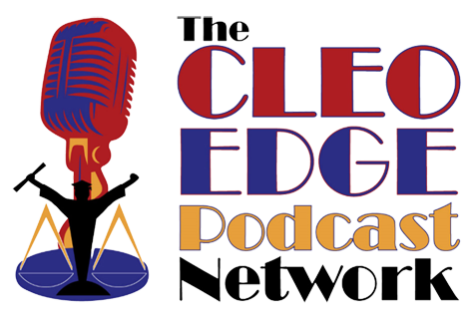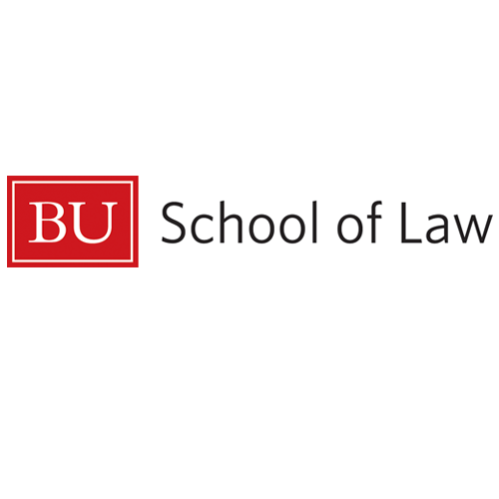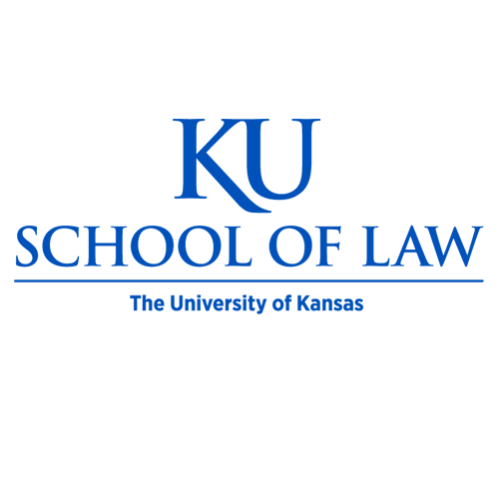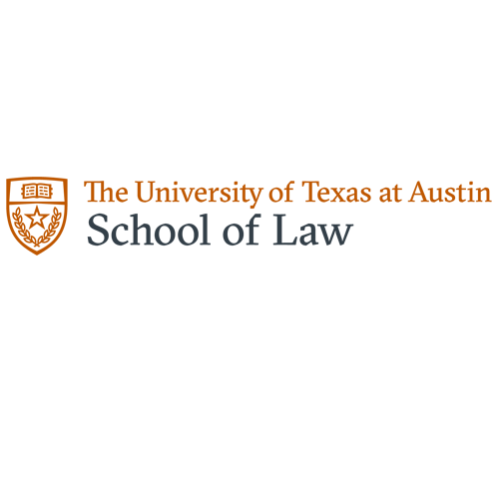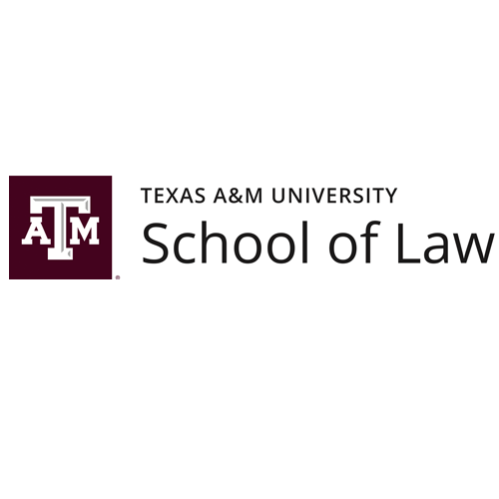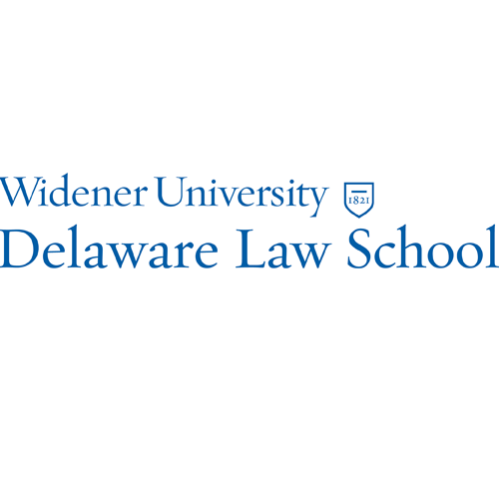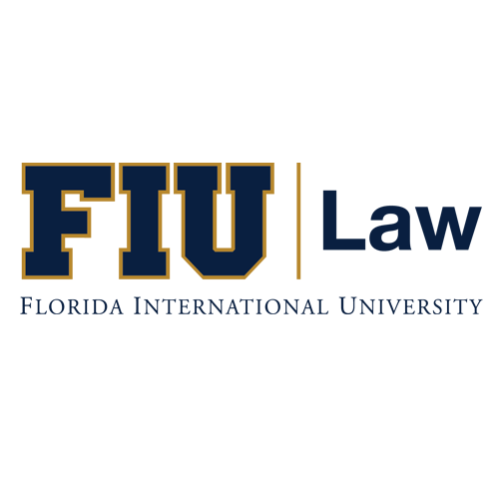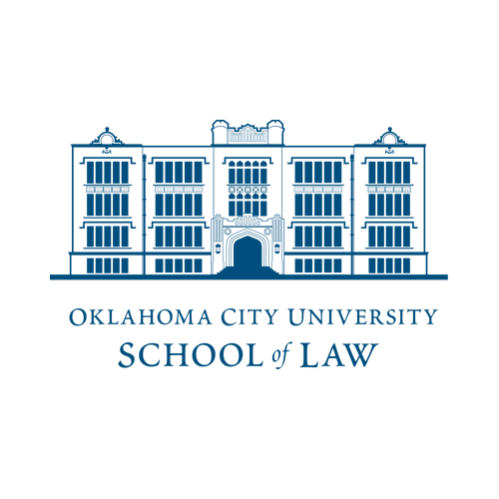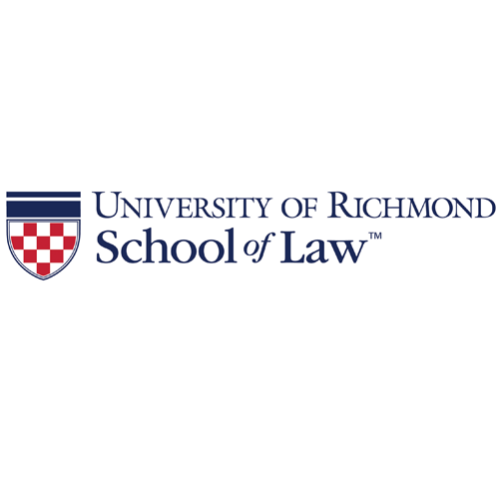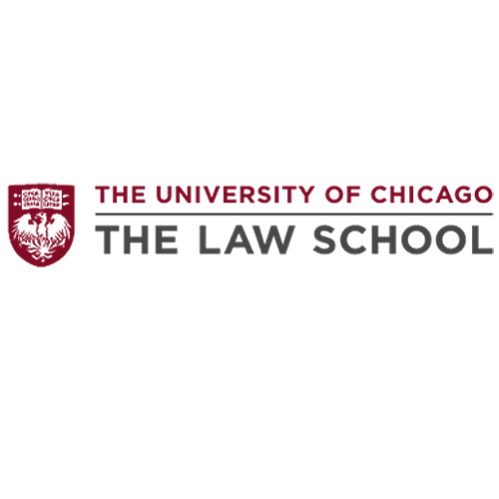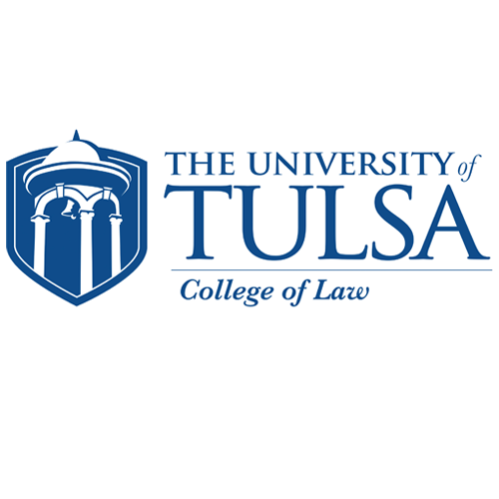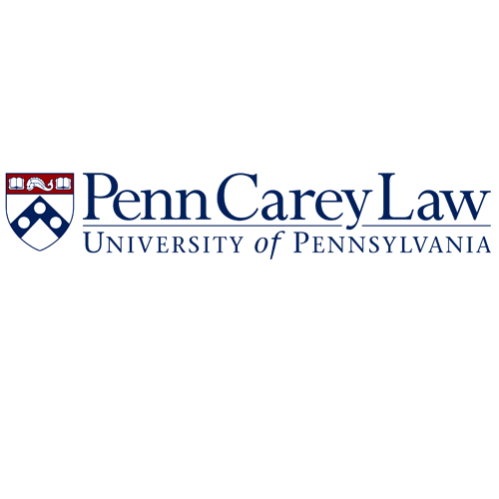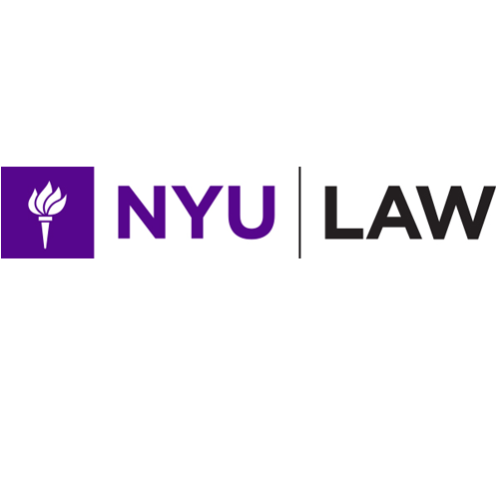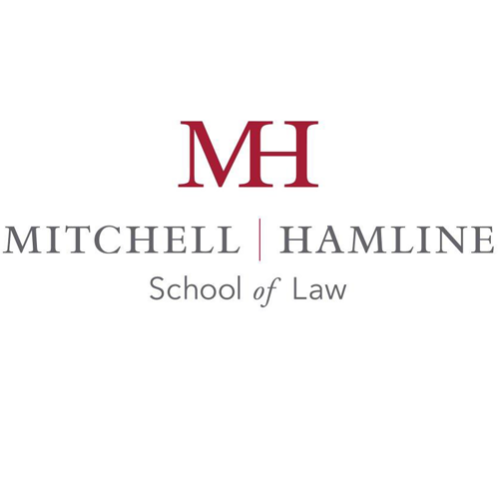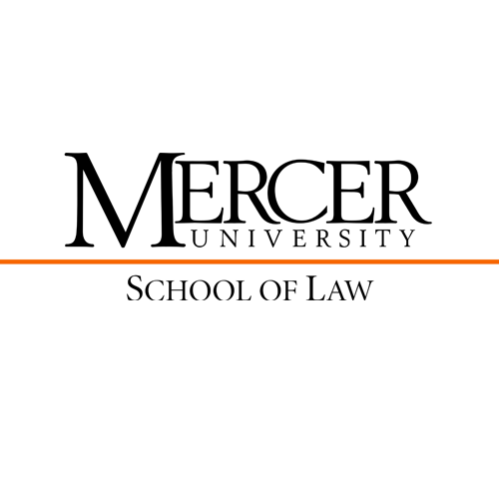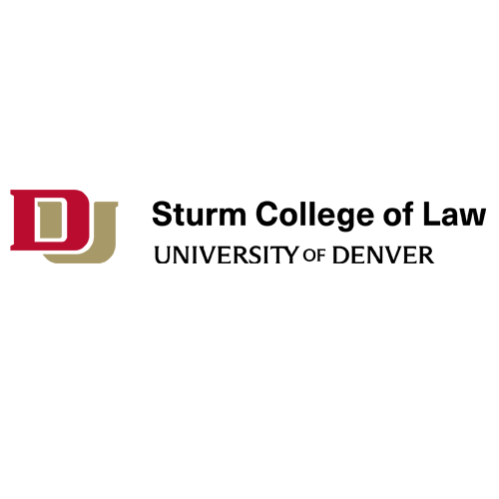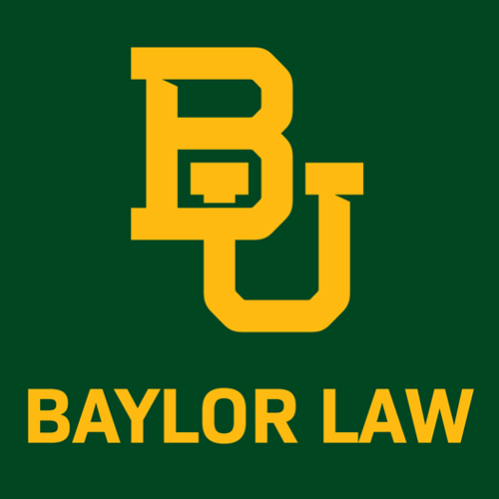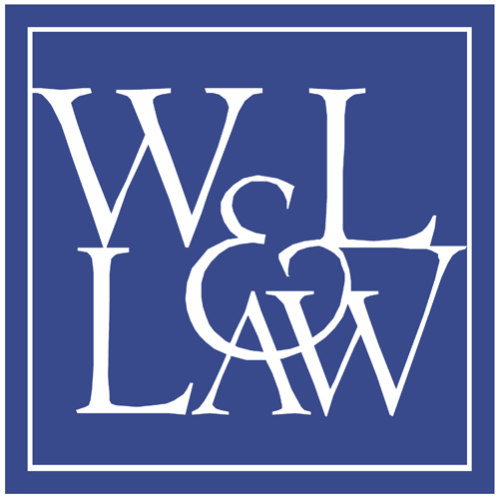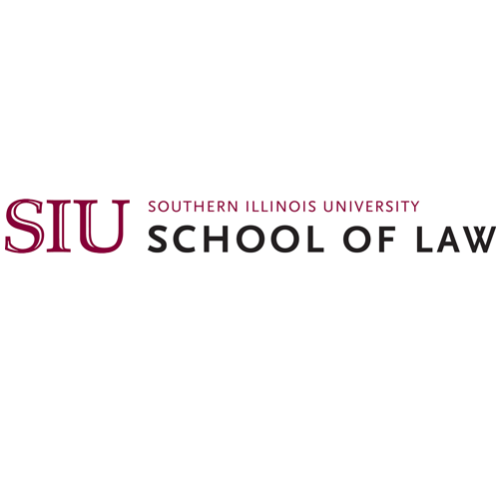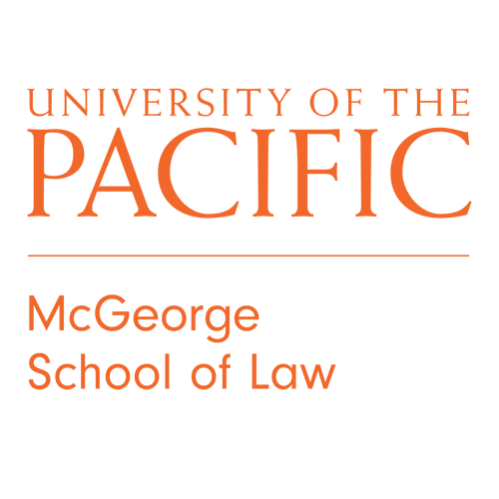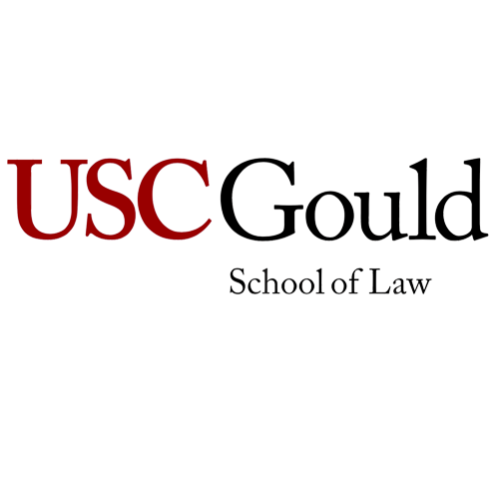
February, 2023 – Issue 8
Welcome to The Council on Legal Education Opportunity, Inc. (CLEO) JD Report. We will share tips on how to prepare for and succeed in law school, get legal profession insights from our CLEO alumni, and get to know our Partners-In-Law – law schools that are making a commitment to diversity, equity, and inclusion.
MEET THE CLEO STAFF
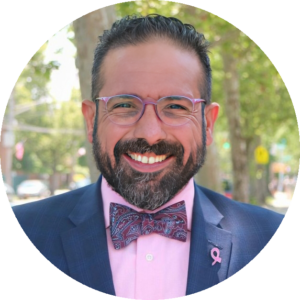
Juan Carlos "J.C." Polanco, Esq., MBA
President & Chief Executive Officer
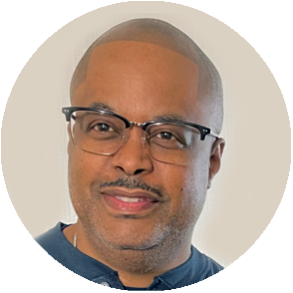
Leigh R. Allen, II, MBA, MS
Chief Operating Officer
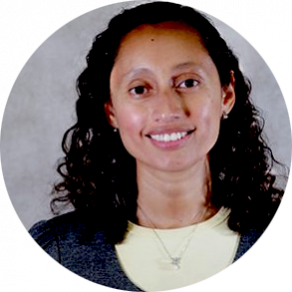
Lynda Cevallos, Esq.
Vice President of Academic Affairs
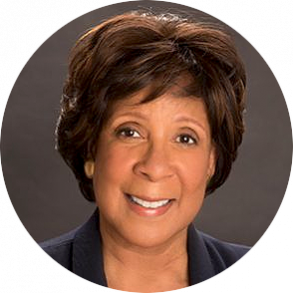
Bernetta J. Hayes, MA, BA
Vice President of Media and External Affairs
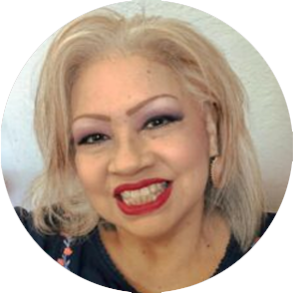
Iris Martinez Juergens, BA
Director of Development and Grants
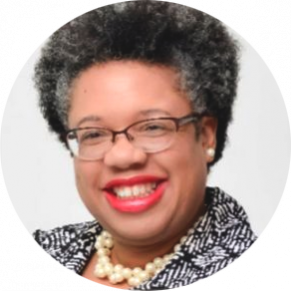
Julie D. Long, BS, CAP, PACE
Vice President of Finance and Administration
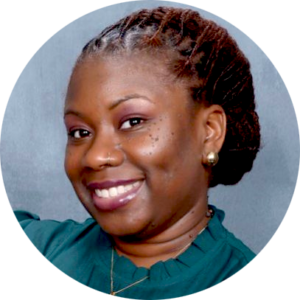
Manika G. Heilig, BS
Regional Director, CLICKS Mentoring Program
The Council on Legal Education Opportunity, Inc. (CLEO): is a 501(c)(3) national non-profit organization that was founded in 1968 to expand opportunities for underrepresented students to attend law school. Since its inception, more than 30,000 students have participated in CLEO’s programs and joined the legal profession.
CLEO CELEBRATES 55 YEARS!

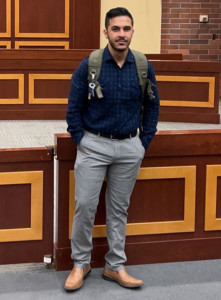
Read Secrets of a Law Student’s success & how CLEO can help YOU!
Karam Talib
University Of Idaho College of Law (1L)
Moscow, Idaho
Q1. What was your course of study in college?
I earned a Criminal Justice Associate degree in 2018, and Bachelor of Arts in Government with Emphasis of Legal Studies in 2021.
Q2. How did you become interested in pursuing law?
I have always heard of the word “Justice”, but I never experienced it. I lost my right hand and left eye when I was nine-years and had to grow up as a vulnerable-stranger in my home country (Iraq), as an unwanted and unwelcome refugee in Syria, so I focused on nothing but survival. In the “Land of Dreams” I was blessed with an opportunity to see and feel my purpose in life. Personally, I do not believe that I chose the field, I truly feel I have been “called” to pursue law.
Q3. What steps did you take to prepare for law school?
I earned the degrees mentioned in Q1, took the LSAT (but could not get the required score), and was informed about the CLEO Summer Institute that helped me be admitted into the University Of Idaho College of Law.
Q4. How did you find out about CLEO?
The Admission Office at U of I informed me about CLEO-PLSI.
Q5. What benefits did you receive by participating in the CLEO Pre-Law Summer Institute or 1L-Prep Attitude is Essential?
For almost two-months long, which was the toughest period or experience I have ever been through, we were introduced and taught knowledge and skills beyond the ordinary. We got to experience “a picture” of what law school would be like. We learned how to read rules and laws, brief cases, manage and dedicate our time, write a legal memorandum, create a law school resume, and much more. We communicated (via zoom) with lawyers, Judge(s), House Representative(s), prosecutors, and many other notable individuals. Without CLEO, law school would have been like a foreign person about to start living in a foreign country where nobody speaks, instead only uses characters with no images… [yes, I mean a completely lost foreigner].
Q6. What helped you cope with the stress of law school?
The fact that I participated in CLEO prior to law school, which equipped me with more than basic knowledge and experience. I came to law school with a picture of how different and difficult it’s going to be. Now, I am living the “whole picture.” It started super hard and stressful, but only my first semester because it was a new “country.”
Q7. After law school, what are your legal career plans?
I have not decided what kind of law I am interested in practicing because I am a 1L student. However, my plan is to work for a public or private office just for few years (to learn the practical experience and knowledge), and then I plan on starting my own law firm/office.
Q8. Do you volunteer or intern with any legal organizations?
I have contacted a public defender office in my hometown, and they told me I am welcome as long as I complete and pass my 1L year. Also, they told me about a potential contract after my 2L year, which includes Bar Exams coverage (including Exams retakes) and all other necessary costs and expenses.
Q9. Do you have any advice for future lawyers?
You will face the most stressful and difficult period of your life in the beginning, but I promise you it will be worth it at the end. Do not listen to the doubters or try to give up very easy; nothing easy is worth trying for. I, AS A PERSON WITH ONE HAND, ONE EYE AND TRAUMATIC CHILDHOOD, AND ENGLISH AS MY SECONDARY LANGUAGE, HAVE MADE IT THROUGH THE “BLOOD-SUCKING” BEGINNING… YOU SHOULD BE ABLE TO DO IT TOO. Believe in yourself, and you should, because you are at a level that privileges you to make significant changes in people’s lives, society, and the world (YES, the WORLD).
Q10. What motivates you to be part of the legal profession?
I want to be able to have my voice reach the universe, beyond earth; to help everyone in need of legal guidance. I want to leave something behind that people will remember me for. I dream of being in a profession that works towards Justice.

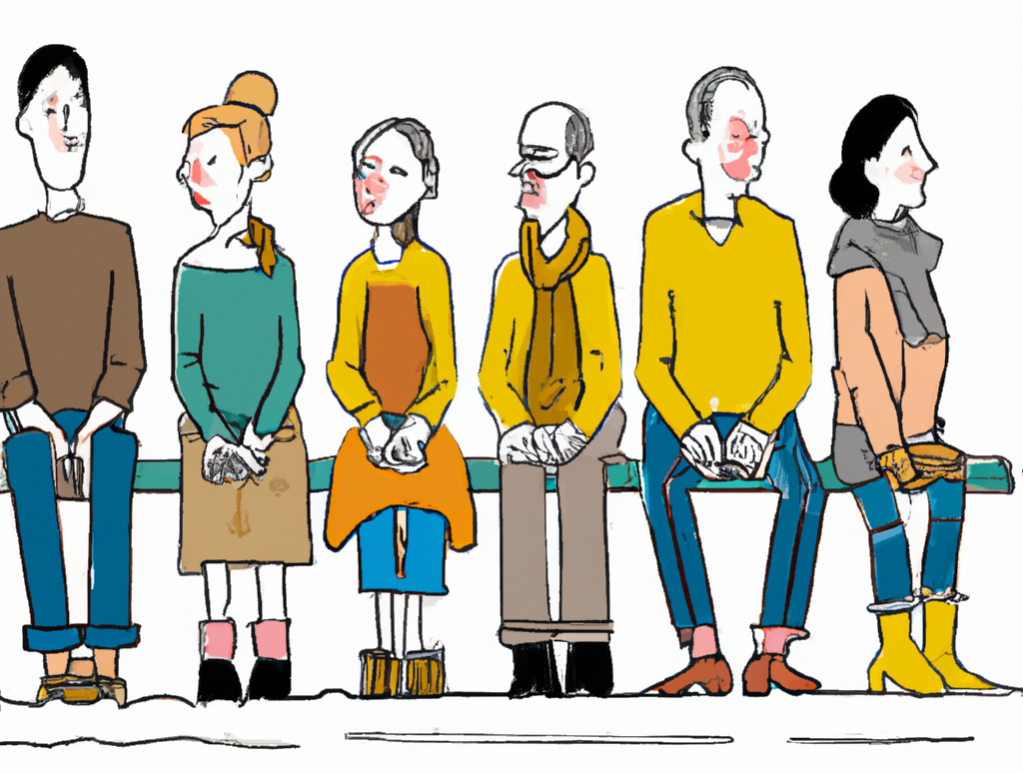
Six neighbors – Arden, Brighton, Cove, Halston, Kingsley, and Lexington – sit on a bench every morning to watch the pigeons. Each morning, each neighbor sits in the same place on the bench.
Based on the rules below, can you determine where each neighbor sits?
1. Arden sits further to the left than Brighton sits; Brighton sits further to the left than Cove sits.
2. Halston sits in one of the three spots furthest to the left; Kingsley sits in one of the three spots furthest to the right.
3. Cove does not sit next to Kingsley; Kingsley does not sit next to Lexington; Lexington does not sit next to Arden.
Solution: (From left to right) Lexington, Halston, Arden, Kingsley, Brighton, Cove

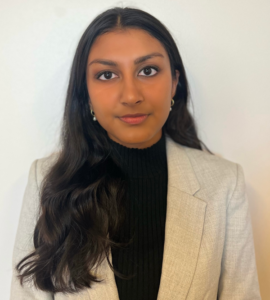
Read Secrets of a Pre-Law Student’s success & how CLEO can help YOU!
Shreya Gupta
Vanderbilt University – Class of 2024
Medicine, Health, & Society Major
Political Science Minor
Q1. How did you find out about CLEO?
I found out about CLEO from my university’s Pre-Law listserv where it was advertised as an opportunity to learn more about the law school admissions process from professionals involved in admissions.
Q2. When did you realize you wanted to attend law school?
My freshman year I was on the pre-medical track, but as I pursued my coursework, I realized that while medicine fascinated me, I was more compelled by the laws and regulations surrounding healthcare. It was after my freshman year that I switched to the Pre-Law track.
Q3. What did you learn during the CLEO program you attended?
CLEO taught me that there are many different paths to law school and there is no one right way to go to law school. The amazing panelists opened my eyes to many aspects of the application process that I was unaware of or did not realize the multifaceted aspects of before.
Q4. How has the CLEO programs influenced your preparation for law school?
CLEO stood out with its no-nonsense attitude. The panelists give you the tough love that most Pre-Law counseling programs will not, and it is extremely valuable.
Q5. Select one of the CLEO programs (ASAP, JJ LSAT or CLEO Connection) you attended. What portion of that program was most beneficial to you and why?
I attended CLEO ASAP and I believe the financial aid panel was the most beneficial because the admissions officers and Deans covered topics that most typical law school admissions programming does not discuss such as how to manage loans and how to decide what law school is the best decision for you financially.
Q6. Do you plan to attend any future CLEO events?
Yes.
Q7. Do you have any advice for other aspiring lawyers?
Despite only being a student, I would say to connect with as many people as possible. The J.D. is such a versatile degree with so many uses. Lawyers end up everywhere and I never knew what my dream career was until I kept connecting with people because I never knew it existed.
Q8. Do you have any additional comments about CLEO?
CLEO ASAP is an amazing resource, and everyone should take advantage of it, even if you aren’t sure about law school.

Meet a dynamic young Scholar & listen to his secrets of success!
Xavier Bin Yusif - High School Sophomore (10th Grade)
St. George’s Technical High School, Delaware
Omega Manhood Bridgebuilder Mentoring Program

CLEO Edge Podcast Ep.6 - Creating Change of Her Own: Deborah Martin Owens Is a Pioneer of DEI
Every episode of the CLEO EDGE podcast offers valuable insights into legal education, diversity, and law school admission by featuring leaders from various sectors of the profession.
The most recent episode features CLEO’s CEO, J.C. Polanco, interviewing Global diversity, equity, and inclusion (DEI) strategist, Deborah Martin Owens, who has made diversity, equity, and inclusion her life’s work.
A first generation high school, college, and law school student, the activist/leader says that the legal profession has been good to her because it provided her “community, friendships, and opportunities to serve. ” Most importantly, however, she has been gratified to help students and young attorneys to navigate their path through the legal profession. [Read the full press release here…]

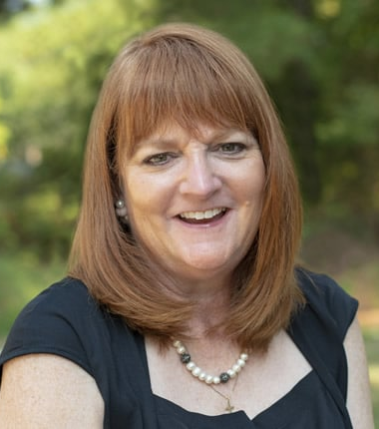
The New Age of AI Chatbot and Law School Applications
by Wendy Vonnegut, Esq.
Director, Legal Studies Program,
University Pre-Law Advisor
Methodist University
Fayetteville, NC
As a Pre-Law advisor for the past 20 years, I have watched the influence of technology in not just the way students receive information regarding law schools, but also in the way students prepare for law school. So, when I read all the chats on a listserv for professors on the use of AI Chatbot, I had to wonder how this could apply to law school applications.
It seems to me that one area in which students seem to have a difficult time is writing a person[al] statement for law school applications, i.e., the questions that students must answer to explain their interest in attending law school. After reading how some students have used AI Chatbot for law school exams, I decided to try using an AI Chatbot to help me write a personal statement.
I easily set up the account for the AI Chatbot for free and then the fun began. My first question was the typical easy question that sometimes law schools ask their applicants: Why do you want to go to law school? I typed the question, and this is the response I received:
I want to go to law school because I am passionate about social justice and equity. I am drawn to the law as a way to help create a more equitable and just world. I believe that the law is a powerful tool that can be used to effect positive change and to make sure that everyone has access to justice. I also feel that by obtaining a law degree, I can learn more about the legal system and how to use the law to advocate for those who need it the most.
Social Justice and equity? The AI Chatbot may understand these concepts but does the student? Reading their application, we have no idea.
I then typed in the following statement: I know that I will be an excellent attorney…… and AI Chatbot then completed the sentence with this,
Because I have the intelligence, work ethic, and passion for justice that are required for success in this profession. I am confident that I can use my legal education to make a positive impact on the world.
While the student may in fact have a strong work ethic, that work ethic did not include writing their own statement.
I then wrote my personal stories are…. and AI Chatbot then completed the sentence with this,
A driving force for me to pursue a legal education. I have seen firsthand how the law can be used to empower people and to make real and lasting changes in our communities. I know I can use my law degree to help make a difference and to be an advocate for those who need it the most.
There is a concern because we do not know if the student actually has firsthand experience in any area of law, more specifically what their personal stories are. It does not provide details of any of the students’ personal experiences.
I then decided to type in I want to attend this … law school, and AI Chatbot then completed the sentence with this,
Because I believe it will provide me with the tools and resources I need to be an effective advocate for social justice and equity. The faculty and staff are highly experienced and knowledgeable professionals who can help guide and mentor me as I enter the legal profession. Additionally, Law has an excellent reputation as one of the top law schools in the country and I am confident that I will receive a world-class legal education there.
This statement shows no understanding of the specific law school, the clinics, the faculty, or any particular characteristic that sets this law school apart from all the others. It does not explain why this student wants to attend this particular law school.
I then decided to go for the gold and ask the following question.
What makes you stand out against other law students, and AI Chatbot then completed the sentence with this,
I stand out among other law school applicants because I have a strong passion for social justice and equity that I have developed through my personal experiences. I have a deep understanding of the law and its power to effect positive change, and I am determined to use my legal education to make a positive impact on the world. Additionally, I have a strong academic record and a commitment to hard work. I am also highly organized and have a reputation for being reliable. I have excellent communication skills and I am confident in my ability to work with people of various backgrounds. Finally, I have a deep commitment to giving back to my community. I have volunteered my time and resources to local organizations that are working to make our communities stronger and more just. This commitment to social justice and equity has given me the opportunity to gain valuable experience and knowledge that I know will make me an effective advocate for those who are in need.
Although this statement is well written, it does not explain how this student is different from all the other applicants, nor does it explain anything personal about them. The statement addresses the applicant’s commitment, drive and determination to attend law school; however, there are not any examples provided of that individuals commitment, drive or determination.
As you can see, this feedback was not bad and most students would turn this in and you have no way of checking to see that it was not their words or thoughts, but AI. I did ask one more question that I think you will find interesting. Will AI help students with personal statements for law school and this was the answer,
AI can help students with personal statements in law school applications by providing assistance in the drafting process. AI-powered solutions can analyze an applicant’s writing style and offer suggestions for improvement. AI can also provide feedback on grammar, syntax, and punctuation. AI can also help students to identify strong themes and stories in their personal statements. AI can analyze an applicant’s story and suggest ways to make it more compelling and engaging. This can help students to craft a more personal statement that will stand out to admissions committees. Overall, AI can be a useful tool for students in the law school application process. It can provide valuable assistance in the personal statement drafting process, helping to make the statement more concise, compelling, and effective.
While AI can be criticized for some things, I have to agree with the above answer, that AI can be a very useful tool to help students develop a well written personal statement and to help a student realize the reasons that they want to attend law school. Ultimately, I do think that AI is a useful tool but only if used properly. I found it helpful in feedback and think students will too.

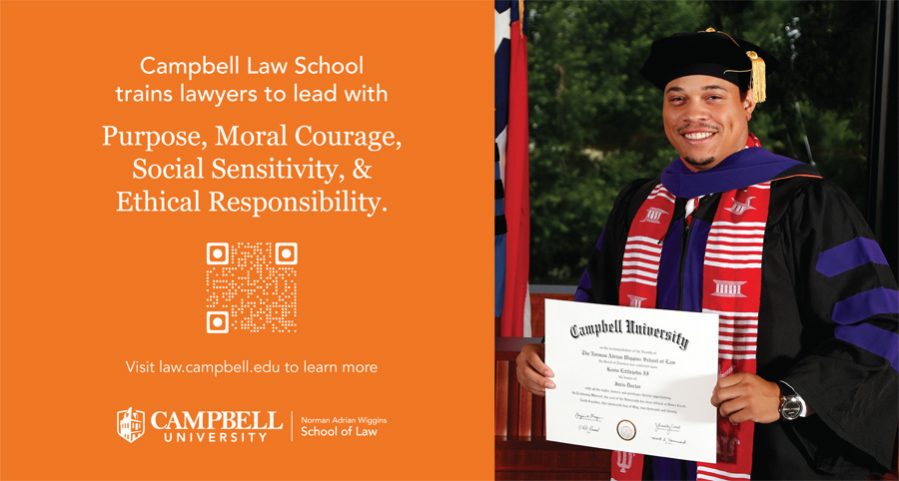
Campbell University
Norman Adrian Wiggins School of Law
A Capital Idea
Founded in 1976, this private law school is located in downtown Raleigh, the capital of North Carolina. Students’ environment is a “legal laboratory.” Here’s Campbell Law’s diversity statement: “ Campbell Law trains lawyers to lead with purpose, moral courage, social sensitivity, and ethical responsibility. The law school believes all people are to be valued, cherished, and treated with dignity. Our diversity pledge reminds us to honor and respect one another and our varied experiences. Supporting this DEIB commitment, Campbell’s Multi-Cultural Council and the Law School’s Committee on Community, Diversity, and Student Life Committee monitor and nurture our community of belonging, invite feedback from external experts on inclusion and belonging, offer programs to amplify underrepresented voices, engage in courageous conversations, and develop educational opportunities on bias, cross-cultural competency and racism.”
Visit Campbell Law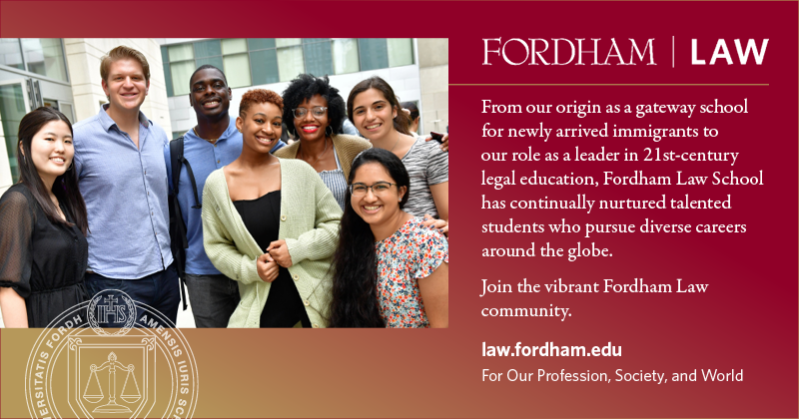
Fordham University School of Law
More than a Century of Leading
Fordham Law believes that lawyers are at their best when they understand the perspectives of others. Through various programs, the law school is building an environment where people of all backgrounds can thrive. Their REAL Scholars and IDEAL programs help students from historically underrepresented backgrounds become leaders both on campus and in the legal profession. Students can explore issues of race and the law alongside the prominent legal scholars leading our Center on Race, Law and Justice and our Center on Asian Americans and the Law. Fordham Law proudly received an A+ “Top School for Racial Justice” rating from preLaw magazine. The law school community is committed to expanding the diversity and inclusivity of the legal profession and training lawyers to practice “in the service of others.”
Visit Fordham University School of Law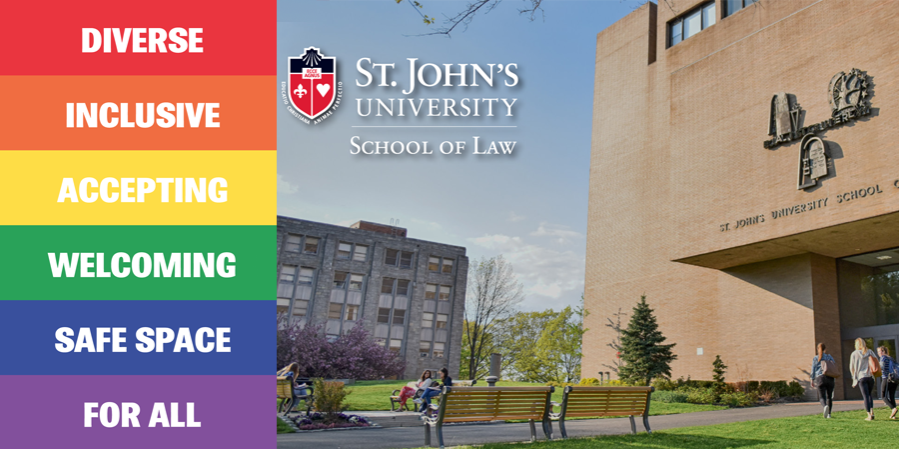
St. John's University School of Law
Lighting the Torch
Since 1925, this private Catholic law school has worked to diversify its student body. The values of diversity, equity, and inclusion have deep roots at St. John’s Law. The law school has a mission to educate students who bring a range of backgrounds, experiences, and perspectives to their legal education. Additionally, the law school has been deliberate in its efforts to increase the number of students of color enrolled, with 36% in 2021 and 2022. A key part of St. John Law’s commitment to recruiting diverse students is to create a diverse, supportive community to ensure the success of their students of color, including generous scholarship support. The law school celebrates its dynamic and vibrant diversity. The Ronald H. Brown Center for Civil Rights is a part of St. John’s Law.
Visit St. John's University School of Law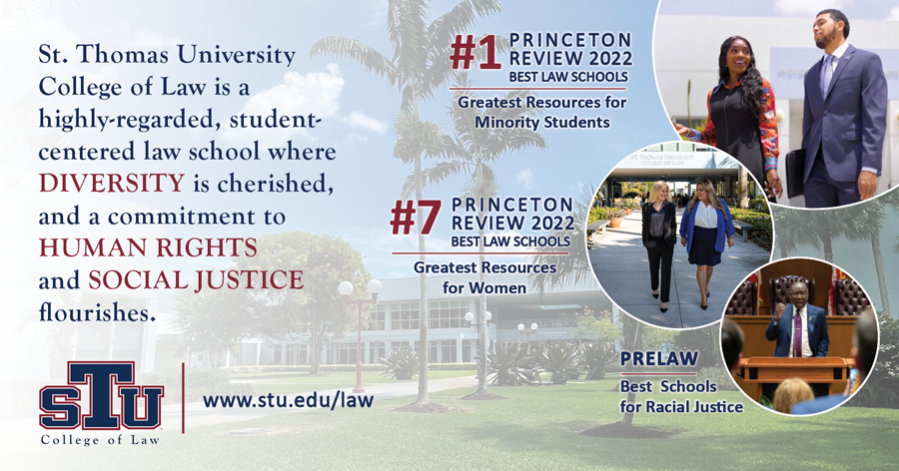
St. Thomas University College of Law
Now Benjamin L. Crump College of Law
Focused on Social Justice
One of 11 of the Sunshine State’s law schools, St. Thomas University College of Law has long been recognized for the diversity of its student body and the sense of community among its students. Located between vibrant legal communities in Miami and Fort Lauderdale, St. Thomas Law offers clinical, externship, internship, and part-time employment opportunities in both. The cultural diversity, commitment to professionalism and small class size make studying law at prestigious St. Thomas Law a unique and enriching experience.
Visit Benjamin L. Crump College of Law
CLEO, Inc. is proud to include many of the nation's premier law schools in our Consortium on Diversity in Legal Education.
PARTNER LAW SCHOOLS
Fordham University School of Law
Loyola University New Orleans College of Law
Marquette University Law School
Mitchell Hamline School of Law
Penn State Dickinson Law
Quinnipiac University School of Law
UConn School of Law
University of Idaho College of Law
The University of Mississippi School of Law
University of New Hampshire Franklin Pierce School of Law
Vermont Law and Graduate School
Washburn University School of Law
SUPPORTING LAW SCHOOLS
Brooklyn Law School
Campbell University Norman Adrian Wiggins School of Law
Case Western Reserve University School of Law
Cornell Law School
Benjamin L. Crump College of Law (formerly St. Thomas University College of Law)
Golden Gate University School of Law
New York Law School
St. John’s University School of Law
South Texas College of Law Houston
University of Buffalo School of Law
University of North Carolina School of Law
SUSTAINING LAW SCHOOLS
Baylor Law School
Boston University School of Law
Florida International University College of Law
University of the Pacific McGeorge School of Law
Mercer University School of Law
Michigan State University College of Law
New York University School of Law
Oklahoma City University School of Law
University of Richmond School of Law
Southern Illinois University School of Law
Texas A&M University School of Law
The University of Chicago Law School
The University of Kansas College of Law
The University of Texas School of Law
The University of Tulsa College of Law
University of Denver Sturm College of Law
University of Pennsylvania Carey Law School
USC Gould School of Law
Washington and Lee School of Law
Widener University Delaware Law School

